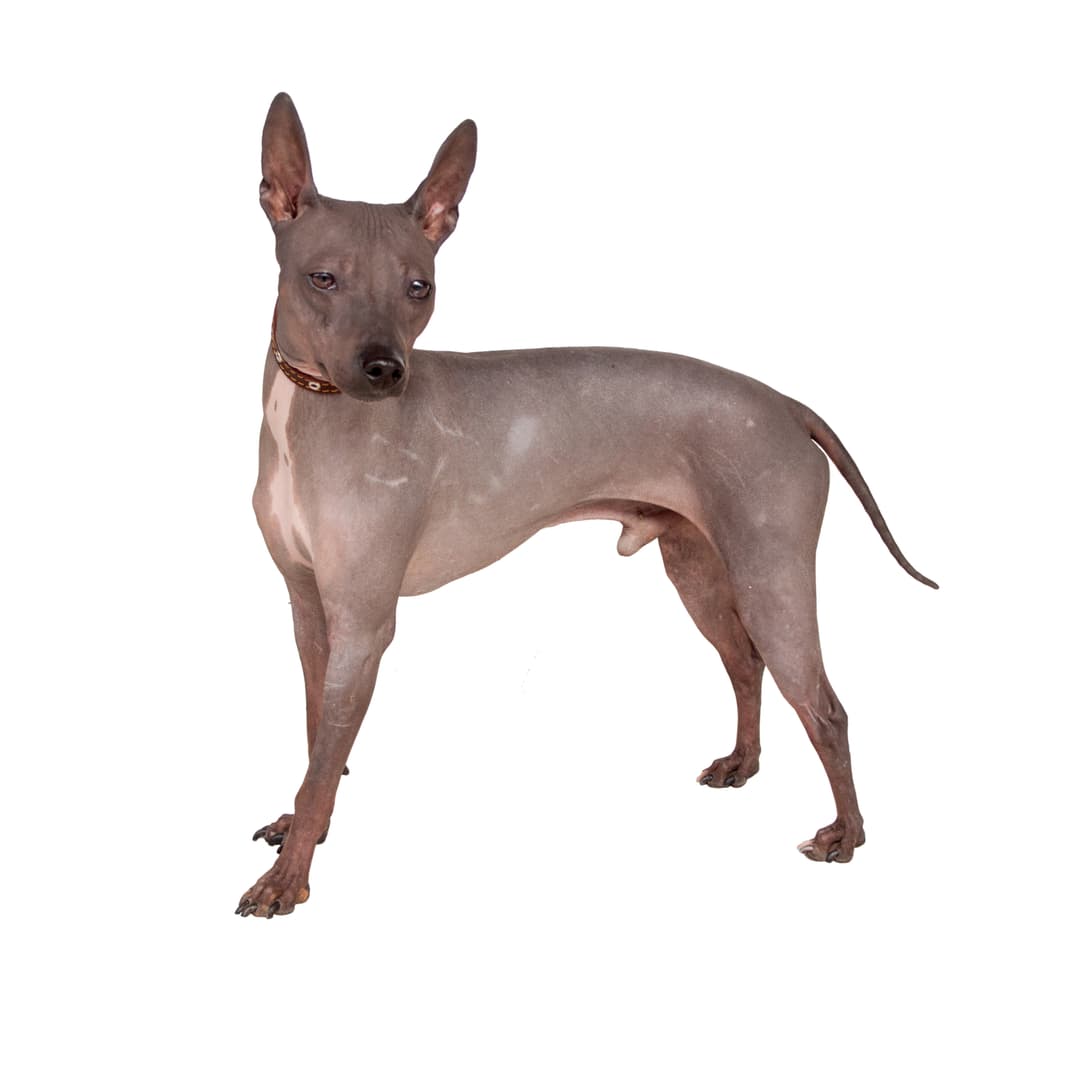Discover your dog's connection to this breed and 200+ others


Discover your dog's connection to this breed and 200+ others



The American Hairless Terrier is a small to medium-sized breed of dog that originated in the United States. This breed's history is fairly recent, dating back to the 1970s when a hairless puppy named ""Josephine"" was born into a litter of Rat Terriers. The breeders, Edwin and Willie Scott, were intrigued by this anomaly and began a selective breeding program to establish a new breed that became known as the American Hairless Terrier.
American Hairless Terriers can suffer from eye conditions such as progressive retinal atrophy, primary lens luxation and progressive retinal atrophy. They can also be affected by hypothyroidism (congenital, and with goiter), muscular dystrophy, patellar luxation, degenerative myelopathy, hip dysplasia, cardiac conditions, and Legg-Calve-Perthes disease.
American Hairless Terriers are known for their intelligence, energy, and friendly disposition. They are often described as alert, curious, and adaptable. These dogs are good with children and can be a great addition to a family. However, they are also very active and require a good amount of exercise to keep them happy and healthy.
Despite their terrier roots, they are often more sociable with other dogs and strangers than many other terrier breeds. Their hairlessness also means they are a good choice for allergy sufferers, but it does mean they need protection from the sun and cold.
It's worth noting that like all dogs, the temperament of American Hairless Terriers can vary based on their individual personality and upbringing, so it's important to spend time with a dog to get to know them.
A canine genetic lineage is a group of individuals or entire breeds that descended from common ancestors predating modern breed formation. Often these lineages are associated with a ‘type’ of dog with a unique historical working role and associated behaviors (e.g., herding, scent hunting, etc.).
Terriers were bred to hunt pests like rats, foxes, and badgers. Terriers are tenacious and fearless with high energy levels, strong prey drive, and feisty temperaments which all help in their hunting abilities. Terriers were used as mighty hunters in both urban and rural settings. Terriers have natural hunting instincts and protective tendencies.
Example breeds with ancestry from this lineage include Jack Russell Terrier, Scottish Terrier, and Yorkshire Terrier.
This breed was officially recognized by the American Kennel Club (AKC) in 2016.
American Hairless Terriers are sometimes bred with their cousins, the Rat Terriers, to keep the gene pool more varied.
These dogs were originally called "Feists" to reflect their feisty temperaments.
DOI: 10.1002/9781119540687
https://www.pawprintgenetics.com/products/breeds/156/
https://www.akc.org/dog-breeds/american-hairless-terrier/
Recommended by top vets with decades of experience
21 breeds
64 genetic health markers
50 genetic trait markers
